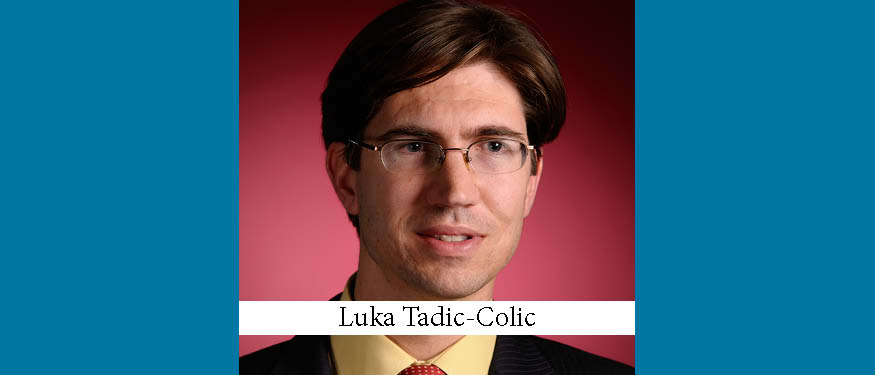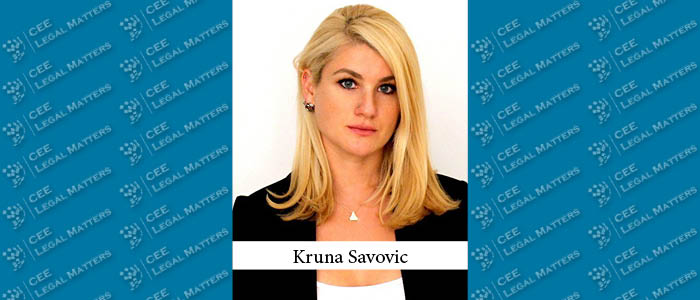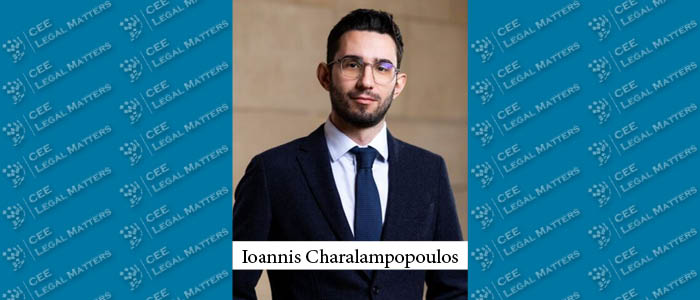Luka Tadic-Colic, the Managing Partner of Wolf Theiss in Croatia, says progress is definitely being made in the right direction.
“Living in Croatia for so long, on the one hand you’re hesitant when people talk reform, but when things actually start happening, even in little steps, it’s a good sign.” And, indeed, he says, following last September’s election of the new government, “after a few initial hiccups, reforms have started.” Tadic-Colic refers approvingly to the country’s new Minister of Economy, Martina Dalic (who also serves as the country’s Deputy Prime Minister), and Zdravko Maric, the new Minister of Finance. “When there’s a personal champion things can happen,” he says, and while nobody believes they’ll be able achieve 100% of what they propose, “if even 30-40% of it happens, that would be good."
So far, Tadic-Colic reports, “the most significant development" is a reform to the Tax Code enacted in December of 2016 just in time to come into effect on January 1st of this year, which resulted in “significant changes in the tax landscape and a lowering of some of the key rates, which in turn resulted in more disposable income and spurring the domestic demand side of the economy, which is a healthy development.” This reform has been welcomed by the business community, Tadic-Colic reports, noting that while it's not as good or far-reaching as it could have been, “most would agree it's a step in the right direction, and that it will, if nothing else, improve the image of Croatia as a stable country.”
Indeed, the government seems to be pursuing a number of initiatives to improve Croatia’s reputation as a place to do business, Tadic-Colic reports. Additional changes are expected this year — from relatively minor (such as the abolishment of the need for a company stamp on every document), to more significant, such as liberalizing markets such as driving schools, “and even the legal services market itself.” On this latter note, the rather restrictive Croatian regime which forbids law firm advertising may be loosened somewhat, Tadic-Colic says, noting that it’s “on the legislative agenda.” He cautions that any such changes will need to be made in cooperation with the Bar Association, and that “nothing concrete or definite has been proposed so far,” so it’s not clear how much will actually happen, but as the country seeks to align itself more closely with the EU’s Services Directive, which provides that marketing should generally be permitted unless legitimate reasons for restricting it exist, he’s hopeful that "at some point the country will embrace this as a way of doing business.” The Wolf Theiss Partner notes that “as a regional firm it’s quite normal for us,” and he reports that “even the local Croatian firms would welcome this.”
Tadic-Colic hasn’t seen a major uptick in law firm business yet, “but people are talking transactions.” He notes that at the end of last year Croatia lost a major arbitration to MOL (as reported by CEE Legal Matters on January 17, 2017), regarding MOL’s acquisition of a controlling share in the country’s national oil company (Ina Industrije Nafte d.d.), which “spurred talks to re-nationalize the company.” In a related story, Tadic-Colic reports that the new government is "also talking about doing an IPO of the country’s national electricity company (HEP), floating approximately 25% of the company with the hope that it would be bought by Croatian pension funds or Croatian citizens and the proceeds would provide a source of cash to fund the repurchase of the oil company’s shares.” There’s little certainty about when this is going to happen, Tadic-Colic reports, and there’s some real opposition to the initiative. “I would think that the government would be inclined to do this sooner rather than later, but as it’s a political issue, it will probably not happen before the local elections later this year.
Finally, Tadic-Colic says, “one of the recent legal developments welcomed by the legal community is the December 2016 reform of the public procurement process in the country, bringing it into closer alignment with EU legislation. Price is no longer defined as the sole criterion, which is now to be made in favor of the “most economically advantageous offer.” This definition allows the country to factor in the qualifications and experience of bidders. The process was also significantly simplified as well.






























